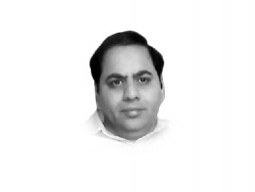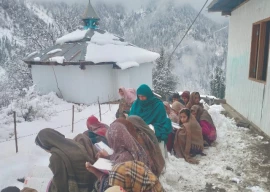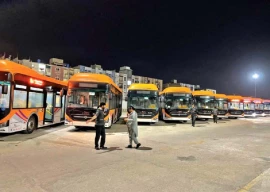
On January 17, 2025, Pakistan achieved a significant milestone in its space exploration journey with the successful launch of its first indigenous Electro-Optical (EO) satellite, PRSC-EO1, from the Jiuquan Satellite Launch Centre in northern China. The launch, conducted by the Space and Upper Atmosphere Research Commission (SUPARCO), showcases Pakistan's growing technological capabilities, placing the country among advanced nations in space science. The PRSC-EO1 is equipped with cutting-edge electro-optical sensors designed to capture high-resolution images of Earth's surface by detecting reflected sunlight or emitted radiation. This advanced technology will enable Pakistan to monitor critical sectors such as agriculture, disaster management, urban planning, and environmental sustainability, all of which are crucial to the nation's long-term development.
One of the key applications of the EO-1 satellite is in precision farming. Agriculture remains a vital part of Pakistan's economy, and the satellite's sensors will play an essential role in optimising irrigation systems, predicting crop yields, and monitoring agricultural conditions. By providing accurate data, the satellite will help improve farming practices, leading to better resource management and higher productivity. Moreover, with the rapid expansion of urban areas, EO-1 will assist in managing infrastructure development. Its ability to monitor urban sprawl and infrastructure growth will help Pakistan plan and control city expansion, ensuring sustainable urbanisation. Additionally, the satellite's capabilities extend to monitoring environmental changes, such as deforestation, glacier recession, and the availability of water resources, all of which are crucial in mitigating the effects of climate change. Furthermore, EO-1 will provide critical data for disaster management, offering real-time updates on natural disasters like floods, earthquakes and landslides, thus enhancing emergency preparedness and response strategies. In addition to these environmental and disaster-related applications, EO-1 will support the monitoring of valuable natural resources, including minerals, oil, and gas reserves, aiding in their sustainable management and contributing to Pakistan's economic planning.
The successful launch of PRSC-EO1 represents a significant step toward Pakistan's self-reliance in space technology. Developed entirely by SUPARCO, with the support of local engineers and scientists, the satellite reflects the growing expertise within the country's space programme. This achievement marks a departure from Pakistan's historical reliance on foreign technology, highlighting its increasing proficiency in space science and innovation. The EO-1 satellite is a testament to Pakistan's commitment to advancing its technological capabilities and contributing to the global space economy. It aligns with the goals outlined in Pakistan's National Space Policy, which emphasises national security, technological innovation, and enhancing the quality of life for citizens through the use of space technology. The EO-1 satellite is an essential tool in addressing critical national challenges in agriculture, urbanisation, environmental sustainability and disaster management. By providing valuable data and insights, the satellite will enable the government to make informed decisions that will drive Pakistan's socio-economic growth and foster sustainable development.
Beyond the launch of EO-1, Pakistan's space programme has made significant strides in recent years. In May 2024, Pakistan launched the PakSat-MM1 satellite, a multi-mission communication satellite aimed at improving internet connectivity and expanding digital infrastructure across the country. Furthermore, Pakistan's partnership with China in the upcoming lunar exploration mission, set to launch in 2028, signals the nation's expanding ambitions in space exploration. These milestones demonstrate Pakistan's growing presence in the global space sector and its determination to play an active role in space exploration.


1719131916-0/Lily-Allen-and-David-Harbor-(1)1719131916-0-165x106.webp)
















COMMENTS
Comments are moderated and generally will be posted if they are on-topic and not abusive.
For more information, please see our Comments FAQ